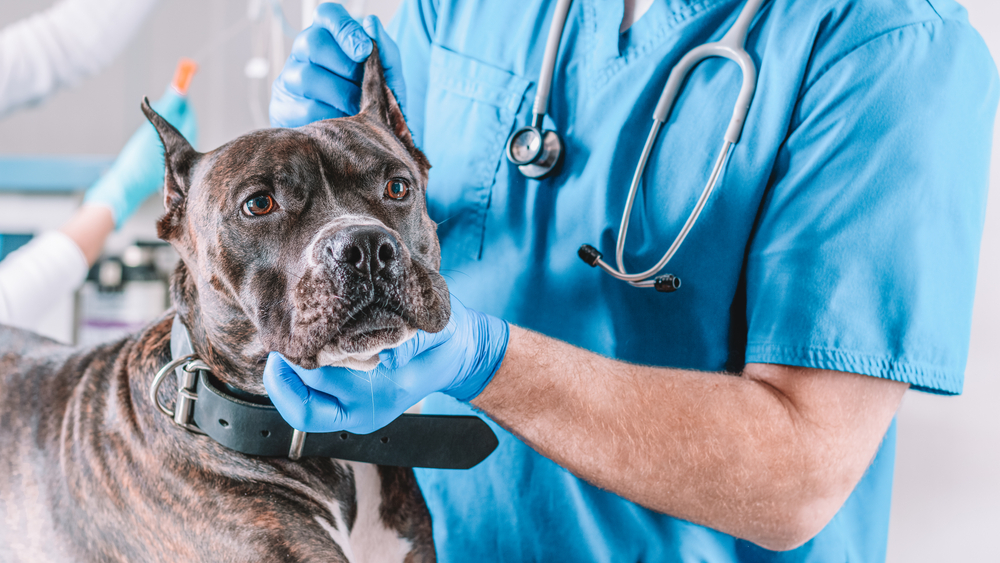What to Expect From a Visit to the Veterinary Emergency Room
While no one expects a veterinary emergency, it helps to understand how to deal with an emergent situation and find the help your pet needs. A veterinary ER offers specialized emergency care that can save your pet’s life. Do you know what to expect from a visit to the veterinary emergency room? This guide will help prepare you in case you ever need to bring your pet to one:

What Is a Veterinary Emergency Room?
While many regular veterinarians take urgent care and minor emergency visits, these are not true veterinary emergency rooms. Our veterinary ER, for example, is staffed by emergency and critical care specialists 24/7. The doctors and staff deal with nothing but emergencies, so they have specialized knowledge about emergent health issues and treatments.
Triage
A veterinary ER differs from a regular veterinary office because your pet will be triaged when they arrive. This gives the emergency response team the best idea of what is happening, how serious the problem is, and whether or not your pet needs immediate care. It helps to call ahead so that the emergency team can be expecting you and can help assess the seriousness of the case before you arrive.
Potentially Long Wait Times
Since veterinary ERs triage cases and decide care order based on which animals need it most, you might experience long wait times in the emergency room. This does not mean that the staff has forgotten about you or doesn’t care about what’s going on with your pet. If your pet’s condition is not immediately life-threatening, they may have to focus on another case first.
Don’t worry; we will give your pet the attention he or she requires as soon as we can.
Assessment
Your doctor may need to perform a thorough physical examination as well as diagnostic tests to help determine the extent of your pet’s injury or illness. Once the veterinary team has a better idea of what your pet needs, they will start to talk to you about various treatment options, including estimates of each treatment option so that you can make an informed decision.
Short-Term versus Long-Term Solutions
Sometimes, when animals are experiencing an emergency, the veterinary team must first focus on stabilizing them. This can mean providing fluids, medications, or even surgical intervention to get them stabilized.
However, these life-saving measures are not always the only care your pet will need. Once your pet is stabilized, your emergency vet will communicate with your regular veterinarian about any follow-up care that might be needed in the future. For example, if your pet is diabetic and their blood sugar is too high or too low, the short-term priority solution is to get the blood sugar stabilized. Afterward, we can advise you and your regular veterinarian about long-term solutions and a continuous care plan for your pet.
Higher Prices than Normal Veterinarians
Emergency veterinarians rely on advanced diagnostics like X-rays, blood work, and ultrasounds to determine how critical each case is. They have specialized staff on duty 24 hours a day, and have to be prepared to offer a wide variety of services to deal with any emergency they see.
Because of this, veterinary ERs will typically be significantly more expensive than a regular veterinary visit–even an urgent care visit. You should be aware of this and talk to the staff about your payment options. You can also invest in pet insurance or a pet health savings account to help curb emergency care costs. These are, by nature, unexpected expenses, so preparing ahead removes some of the stress of a pet emergency.
We hope this helps you know what to expect from a visit to the veterinary emergency room so that you can be mentally and financially prepared. During an emergency, you’ll be anxious and want to be able to focus on what’s most important–your pet’s care.
Oakland Veterinary Referral Services has offered premier emergency veterinary care since we opened in 2004. Our experienced team of emergency vets, licensed veterinary technicians, and veterinary assistants are here to handle any potential health emergencies you might experience with your pet. If you experience a pet emergency, call (248) 334-6877 to let our ER team know you are coming.


